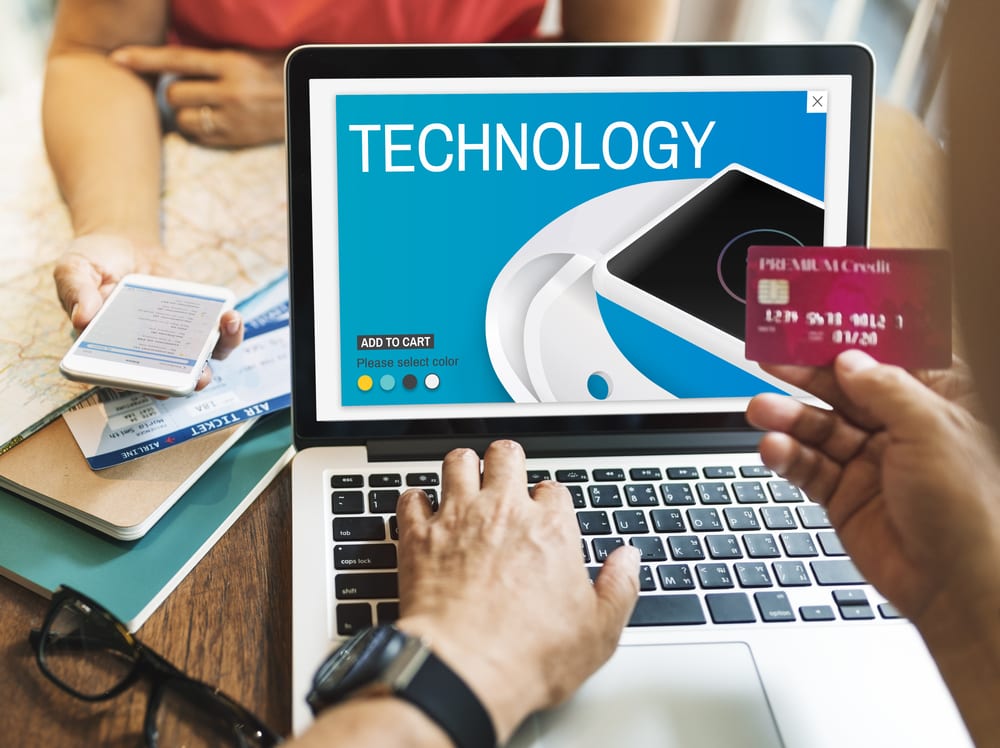Technology for small businesses is more accessible now than ever before. Overall, these technologies provide small business owners and managers with the necessary resources to future-proof their businesses and increase sales. But with so much technology readily available, choosing which to concentrate on or invest in can often feel perplexing.
When adopting new technology, it’s important to know what’s available, what the return will be, and how much it will cost to get you set up. Here are just a few of our favorite technologies for small businesses that will get you the most bang for your buck.
Small Business Mobile Apps
When it comes to new technology, starting off small, and inexpensively, is often the best way to go. For this reason, when looking to adopt new technology for your small business, familiarizing yourself with the world of small business apps is a great place to start.
Mobile apps are as versatile as technology gets. If there is something you need to get done, most likely, there’s an app that can help you accomplish your goal. As a small business owner, you probably have enough tasks in one day to fill a week. That’s where mobile apps can help lessen your load and ease your mind. Depending on the app, they have the ability to do pretty much anything. From staff scheduling to submitting expenses, to consolidating your numerous calendars, yeah, there’s an app for that.
So how much should you expect to pay for mobile apps? The answer is that it varies depending on the app. Many apps are either free or have a minimal one-time download fee of a few dollars. Other apps, you should expect to dish out a tad more for, such as the staff scheduling app Deputy that charges $4 per month, or When I Work, which charges $29 to schedule up to 20 employees.
Cloud-Based Software
If you’re not familiar with cloud computing, you’re in for a treat! Old software technology, the technology that existed prior to cloud-based software, was limiting at best. Information and data, confined to hard drives and servers, was accessible only when at the location of said server or drive. This made working remotely difficult and also presented the risk of losing information if your drive or server was damaged.
Enter cloud-based software, where information and data are stored in the cloud (aka on the internet). What cloud-based software has allowed for, is not only the ability to access your information and therefore work from anywhere with an internet connect, but also to provide a more secure environment for storing your data. In the old days, if someone were to snatch your laptop or your hard drive, they’d have direct access to your information. With your data now stored in the cloud, however, the only way a thief is going to access your info is if they have your login credentials. So as long as you are conscientious in choosing your passwords, your business’ data is more than likely safe from prying eyes.
The price point for cloud-based software is also friendlier on your wallet. Unlike traditional software that could reach hundreds, if not thousands of dollars, cloud-based software runs on a subscription model. The recently adopted software as a service model or SaaS has made gaining access to quality software for small business both easier and more affordable. So instead of spending thousands of dollars for software, you can expect to pay low monthly fees.
POS Systems
If your business is brick and mortar, specifically a retail establishment, investing in a cloud-based point of sale or POS system is one technology you’ll want to leverage for your small business. POS systems are the crux and lifeblood of any business. They not only streamline business processes and control cash flow, but also help you track inventory and improve customer experience.
Put bluntly, they resemble very little of the clunky cash registers of yesteryears. Not only are their capabilities greater, but also — through the SaaS model — their price points are significantly lower, making it the best point of sale technology option for small businesses.
When choosing a point of sale system, it’s important to understand the needs of your business— what kind of business do you own, what are its primary struggles, and what features are most important to you in a POS? After you’ve determined your business’s needs, do your research. Find out what systems are out there, which specialize in your business industry, and speak to as many people as possible, both at the company and those that have experience using POS systems in their businesses.
Though the number of cloud-based POS systems on the market steadily increases every year, finding the best point of sale technology at the right price point can be a challenge for small business owners. Doing your research prior to choosing a company or signing a contract can prevent you from POS headaches later on — having to switch systems, purchase new hardware or ride out unsatisfactory contracts. The time you take now to conduct thorough research will carry you far in the future.
Though the best technology for small businesses to leverage ultimately depends on the type of business, the business owner, and their ultimate goals, having a solid understanding of what is available, provides you with a strong foundation to make your choices. In the end, the small business technologies you choose will be unique and specific to your business as a whole.
Did we miss something? Is there technology you use that you can’t live without? Let us know in the comments below!
Image: Gadget Invention Technology Innovation Digital Concept


